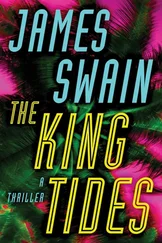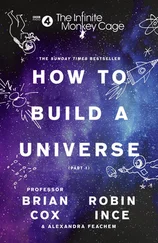“I’m not working myself to death.”
“Look, Keith, you’ve gone through a significant trauma and I’d be lying if I told you I was following some kind of protocol here. There’s no protocol for this. The loss of a child — that alone is significant — but with you up on the ISS …” Again his voice trailed off. Then he said, “Look, I’m trying to help.”
“Crap,” Keith said. There were more words he wanted to say but he would not say them. Instead he said, “This is …,” and then paused and then said, finally, “This is a crappy deal.”
“I’m sorry you feel that way, Captain,” Mullins said.
“So am I.”
“What does the flight surgeon say?”
“Don’t you know?”
“Why would I know?”
“She doesn’t say anything other than that she doesn’t know what’s wrong with me.”
Silence on the line.
“What if she gives me a clean bill of health?” Keith said.
“We’ll cross that bridge when we get to it. The first step is you take some time off. That’s true of any mission, not just this one. After that we’ll talk about your flight status.”
“My flight status?”
“Well, yeah, of course.”
He said nothing. He had been walking through the upstairs slowly during the conversation, looking at the walls he had yet to paint, looping into and out of the various rooms, sipping at the beer as he did so, and now found himself in the bedroom that had been Quinn’s, in that room at last, and he stood and stared out the window to the street below. He could see to the end of the cul-de-sac but no farther. Nothing past the chain that divided the sidewalk from the vacant lot.
“You know you’re important around here,” Mullins said. “You must know that.”
Again, Keith did not respond.
“Take some time to take care of yourself,” Mullins said. “Go see a national park or something.”
“Yeah,” he said, “I’ll do that.” He breathed. No movement out there in the night. He was angry and he knew that his tone likely reflected that anger but he could not change that now.
“Call me when you know what you’re doing,” Mullins said.
“I don’t even know what you’re asking me.”
“I’m asking you to keep me informed.”
“OK,” Keith said.
“Take care.”
He did not answer, instead clicking the phone closed and standing in the empty room for a long moment. After a time he leaned his back against the wall and let gravity pull him to the floor. His eyes closed. He pressed his fingertips against them.
The room around him was a gray and silent cube. He had not entered it a single time since he had returned from the mission. Not once. And now that he was within its walls, he realized that it was likely he had never actually stood in the room at all, instead hovering in the doorway during their conversations, Quinn herself answering from within. This room, he reminded himself. This room: the same space in which she had spent some small portion of her life and which was now an empty gray cube of intersecting planes. What significance could such a location have if only to symbolize the absence of those who had departed? He could recall the words he had said and the way she had peered up at him. But how could that matter now?
The sum total felt as if some part of him had crumbled or rather had simply ceased to be, the indomitable engine of his ever-forward motion blinking out all at once and his longing for that box of files from his office in Houston appeared to him now exactly as it actually was: an absurd and pointless clinging to an image of himself that already did not exist. They thought of him as damaged, had ordered him out of Houston, out of his office. He had lost his flight status and might never regain it. But then perhaps he still did not fully accept it for what it was, sitting with his back against a gray wall in a room that he knew had been Quinn’s room but which was also not Quinn’s room, which was no one’s room and thinking, of all things, not of Quinn but of his job. My god.
He was an engineer and a mathematician and he had done everything they had asked of him and more because that was who he was and he knew that his experiences during the mission had been unique and so he would be studied and tested and tabulated and recorded. He understood that and had expected it to be so and so it was. He had endured. And when he returned to Earth he had continued to endure the only way he had ever known, which was to work because work was how he had accomplished everything and after the mission that work had come to feel like the only tether still capable of tying him to some semblance of normalcy and was therefore the only tangible method of continuing his ever-forward motion.
Hoffmann had asked him repeatedly about Quinn and about his disintegrated marriage, but he had little to say about these subjects. It was as if he had remained in space or rather that Quinn and, to a lesser extent, Barb were separated from him by the atmosphere itself and he could not reach them and therefore he need not think of them in any way that breached the miles between orbit and Earth. Something had changed during those last months in space after Eriksson had told him of Quinn’s death; between the migraines and the medication, whatever idea of grief there had been congealed into a glaucous and impenetrable distance, his mind turning or trying to turn back toward the ratiocinative, the discursive, the direction from which he had always found his way forward.
At first it must have been the pain that had caused them to question his ongoing ability to function as an astronaut. The migraines had certainly affected him during the mission; there was no denying that fact. But when the crew returned to Earth, the pain did not come with him. At least that was what he had thought. Then, during the fourth week in gravity, he had had his first earthbound episode. It had begun in the late morning during his physical therapy session in the pool. He had just completed a fifty-yard lap, clocking in just at the minute mark, and the trainer was congratulating him on his progress. But he was not listening. Instead, he could hear the whining sound deep in his skull and then the dull thrumming in the center of his brain. Dr. Yasbek had told him to immediately notify her if another migraine was coming on and so he clambered out of the pool and told their trainer that the flight surgeon needed him. He could sense the rest of them watching from the water as he grabbed his towel and his robe and walked back to the locker room and changed, his heart beating in his chest, on the verge of panic. He slipped into his shoes and returned to his room and dialed Dr. Yasbek’s office. There was no answer. He left a stammering message and lay back on the bed and then rose again and closed the blinds. And so it began.
He knew at least that the pain would be extraordinary but that it would end. The previous episodes had taught him that much. And here he would be able to vomit into a toilet that actually flushed, an improvement over vomiting in the microgravity where escaped droplets would float trembling in the air before him like tiny burnt-orange planets both pearlescent and grotesque. After three hours in his room, trembling and sweating and yes even weeping under the blankets in the darkness, he did indeed vomit into the toilet in his quarters and, as was always the case, the pain began to dissipate soon afterward. He thought Eriksson might have visited him at some point but then those hours had been reduced to a kind of weird blur of ghosts and motion and the zigzagging lines that obscured and overlaid everything with an erratic violence that could not be avoided no matter how tightly he closed his eyes. He thought too that he had spoken to Quinn in that bloodred agony, as if she had somehow reached him through the conduit of his pain.
Читать дальше












